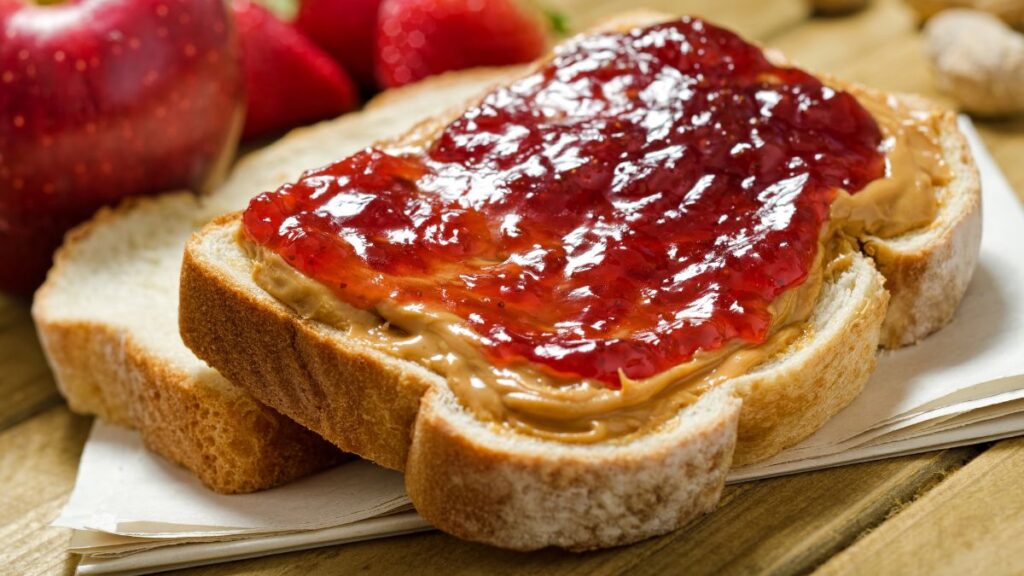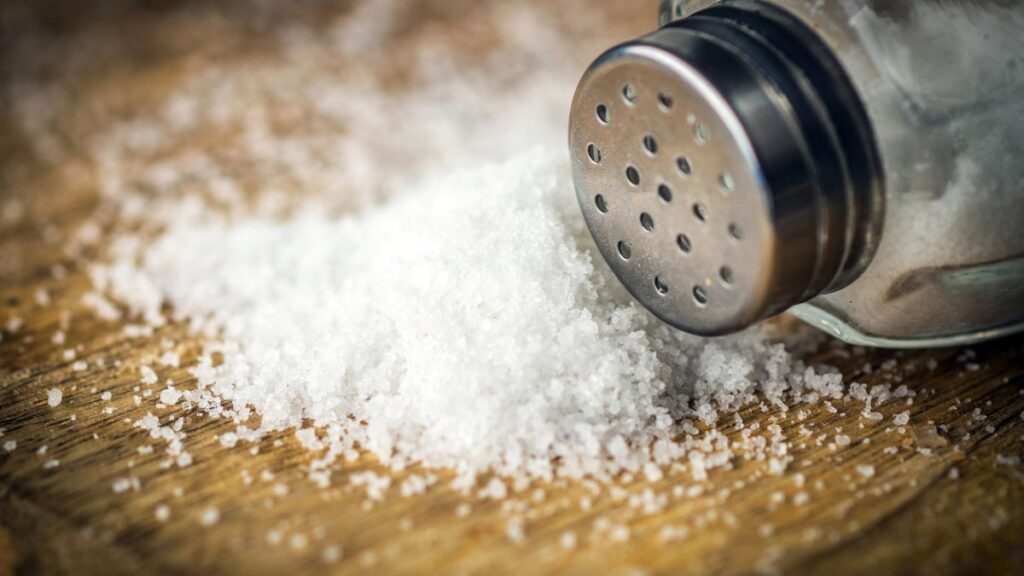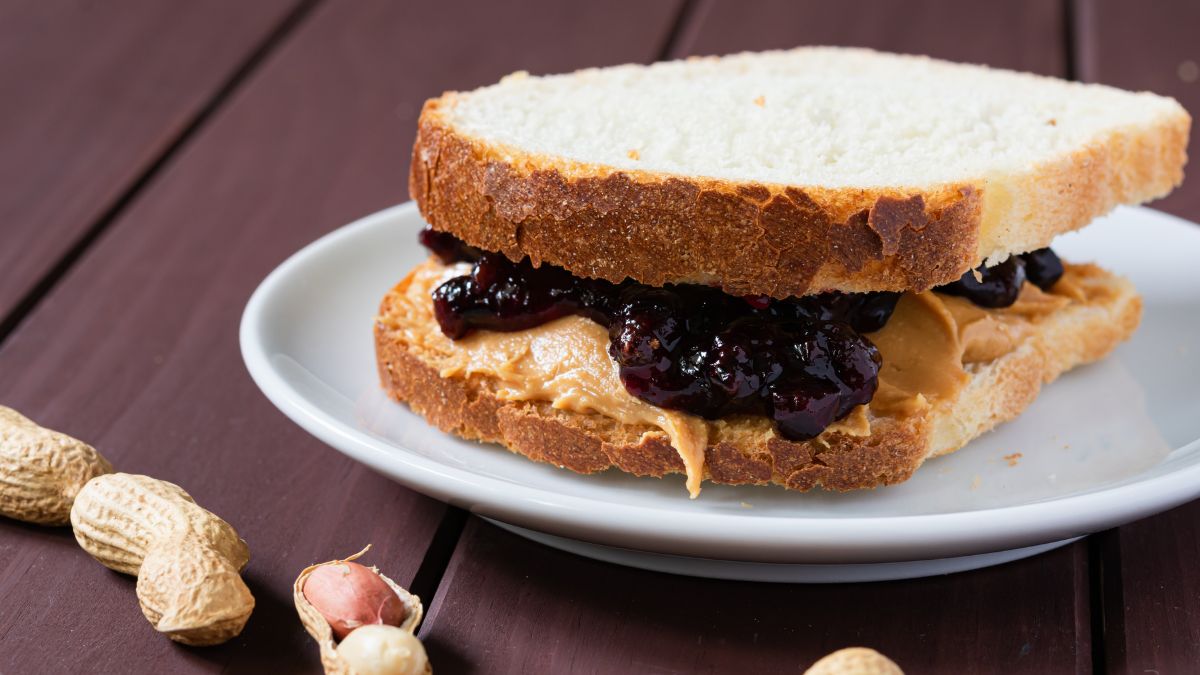15 Surprising Effects of Eating Peanut Butter and Jelly Every Day on Your Body
Peanut butter and jelly sandwiches are a classic comfort food that many people enjoy regularly. They’re quick to make, delicious, and have been a staple in lunchboxes for generations. But have you ever wondered what happens to your body if you eat one every day?
While peanut butter and jelly can be a satisfying meal, eating it daily can have various effects on your health, both positive and negative. Here are 15 surprising things that can happen to your body if you make this sandwich a daily habit.
You’ll Get a Good Dose of Protein

Peanut butter is packed with protein, which is essential for building and repairing tissues in your body. Eating a peanut butter and jelly sandwich daily can help you meet your daily protein needs, especially if you don’t eat much meat.
Protein is also important for maintaining muscle mass and keeping you feeling full for longer periods. However, peanut butter is also high in calories, so moderation is key. If you’re trying to increase your protein intake, this sandwich can be a tasty way to do it.
You Might Gain Weight

While peanut butter is a good source of protein, it’s also high in fat and calories. Eating a peanut butter and jelly sandwich every day could contribute to weight gain if you’re not careful with portion sizes. The calories can add up quickly, especially if you use large amounts of peanut butter or add extra ingredients like honey or banana.
To avoid unwanted weight gain, consider using a smaller portion of peanut butter or opting for lower-calorie versions of the spread. Balancing your diet with other low-calorie, nutrient-dense foods is also important.
You’ll Get a Boost of Healthy Fats

Peanut butter is rich in healthy fats, particularly monounsaturated fats, which are good for your heart. These fats can help lower bad cholesterol levels and reduce the risk of heart disease. Including peanut butter in your daily diet can be a delicious way to get these beneficial fats.
However, choosing natural peanut butter that doesn’t contain added sugars or hydrogenated oils is important. This way, you can enjoy the health benefits without consuming unhealthy trans fats.
Your Blood Sugar Levels Could Spike

Jelly is usually high in sugar; eating it daily can lead to spikes in your blood sugar levels. This can be especially concerning if you have diabetes or are trying to manage your blood sugar. Consistently high blood sugar levels can lead to insulin resistance and increase the risk of developing type 2 diabetes.
To minimize this risk, consider using a low-sugar or sugar-free jelly or natural fruit spread without added sugars. Balancing your meal with whole grains and protein can also help stabilize your blood sugar.
You Might Experience Digestive Issues

Peanut butter and jelly sandwiches are often made with white bread, which lacks fiber and can lead to digestive issues like constipation. If you’re eating this sandwich daily, you might not get enough fiber in your diet, which is important for healthy digestion.
To improve your fiber intake, consider making your sandwich with whole-grain bread, which is higher in fiber and nutrients. Adding fresh fruit to your sandwich can also boost the fiber content and help keep your digestive system running smoothly.
You Could Increase Your Risk of Allergies

Peanuts are a common allergen, and consuming them daily can increase the risk of developing an allergy, especially in children. Repeated exposure to allergens can sometimes trigger an immune response, leading to allergic reactions.
If you or someone in your family has a history of allergies, it’s important to monitor for any signs of an allergic reaction, such as hives, swelling, or difficulty breathing. If you notice any symptoms, it’s best to consult with a healthcare professional to assess the risk.
Your Energy Levels May Improve

Peanut butter is a good source of healthy fats and protein, providing a steady energy source throughout the day. The combination of protein and fat in peanut butter helps to slow down the absorption of sugar from the jelly, providing more sustained energy.
Eating a peanut butter and jelly sandwich can be a great way to fuel your body before a workout or to keep your energy levels up during a busy day. However, be mindful of portion sizes to avoid consuming too many calories.
You Might Develop a Nutrient Deficiency

While peanut butter and jelly sandwiches can be part of a balanced diet, eating them every day without variety could lead to nutrient deficiencies. This sandwich doesn’t provide all the vitamins and minerals your body needs, and relying on it too heavily could mean missing out on important nutrients like vitamin C, calcium, and iron.
To avoid deficiencies, make sure to include a variety of fruits, vegetables, and other nutrient-rich foods in your diet. Variety is key to ensuring that your body gets all the nutrients it needs to stay healthy.
Your Cholesterol Levels Could Improve

The healthy fats in peanut butter, particularly monounsaturated fats, can help improve cholesterol levels. These fats can increase good cholesterol (HDL) while lowering bad cholesterol (LDL).
Regularly consuming peanut butter as part of a balanced diet could contribute to better heart health and a reduced risk of cardiovascular disease. Just be sure to choose natural peanut butter without added sugars or trans fats, as these can have the opposite effect on your cholesterol levels.
You Could Be Getting Too Much Sodium

Many types of peanut butter and bread contain added salt, which can contribute to high sodium intake. Consuming too much sodium can raise your blood pressure and increase your risk of heart disease.
If you’re eating a peanut butter and jelly sandwich every day, it’s important to be mindful of your overall sodium intake. Look for low-sodium peanut butter and whole-grain bread options, and balance your diet with other low-sodium foods to keep your heart healthy.
You Might Boost Your Brain Health

Peanuts contain nutrients like niacin and vitamin E, which are beneficial for brain health. These nutrients can help protect against cognitive decline and support overall brain function.
Eating peanut butter regularly might provide these brain-boosting benefits, helping to keep your mind sharp as you age. Pair your sandwich with other brain-healthy foods like berries, leafy greens, and fatty fish to maximize the brain health benefits.
Your Skin Could Benefit

Peanuts are rich in vitamin E, a powerful antioxidant that helps protect your skin from damage caused by free radicals. Regularly consuming vitamin E through foods like peanut butter can contribute to healthier, more radiant skin.
Vitamin E also helps to maintain the skin’s moisture barrier, keeping your skin hydrated and smooth. If you’re looking to improve your skin health, incorporating peanut butter into your diet can be a tasty and easy way to get more vitamin E.
You Could Increase Your Risk of Aflatoxin Exposure

Peanuts can sometimes be contaminated with aflatoxins, which are toxic compounds produced by certain types of mold. Long-term exposure to aflatoxins has been linked to an increased risk of liver cancer and other health issues.
While the risk is generally low in commercial peanut butter, consuming it every day could increase your overall exposure. To minimize this risk, choose high-quality peanut butter from reputable brands and store it properly to prevent contamination.
You Might Improve Your Mood

Peanut butter contains tryptophan, an amino acid that helps produce serotonin, a neurotransmitter that regulates mood. Eating peanut butter regularly could help boost your serotonin levels, leading to improved mood and a greater sense of well-being.
Paired with the comfort of a familiar sandwich, this could make your daily peanut butter and jelly ritual a mood-lifting experience. If you’re looking for a natural way to boost your mood, this classic combo might do the trick.
You Could Reduce Your Risk of Gallstones

Some studies suggest that regular peanut consumption may reduce the risk of developing gallstones, particularly in women. The healthy fats in peanuts help regulate cholesterol levels, which can prevent the formation of gallstones.
If gallstone prevention is a concern for you, eating a peanut butter and jelly sandwich could be a delicious way to support your health. Just be sure to maintain a balanced diet to avoid other risk factors for gallstones, such as obesity or a high-fat diet.
Eating Right With Type 2 Diabetes: Stay Away From These 15 Foods

Managing type 2 diabetes involves making careful food choices to keep your blood sugar levels stable. Some foods can cause your blood sugar to spike, making it harder to manage your diabetes.
Eating Right With Type 2 Diabetes: Stay Away From These 15 Foods
15 Foods That Are Becoming Too Expensive To Buy Due To Skyrocketing Prices

Food costs have been steadily rising in recent years, impacting households worldwide. Various factors, such as climate change, supply chain disruptions, and increased demand, have contributed to the soaring prices of many staple foods.
15 Foods That Are Becoming Too Expensive To Buy Due To Skyrocketing Prices







